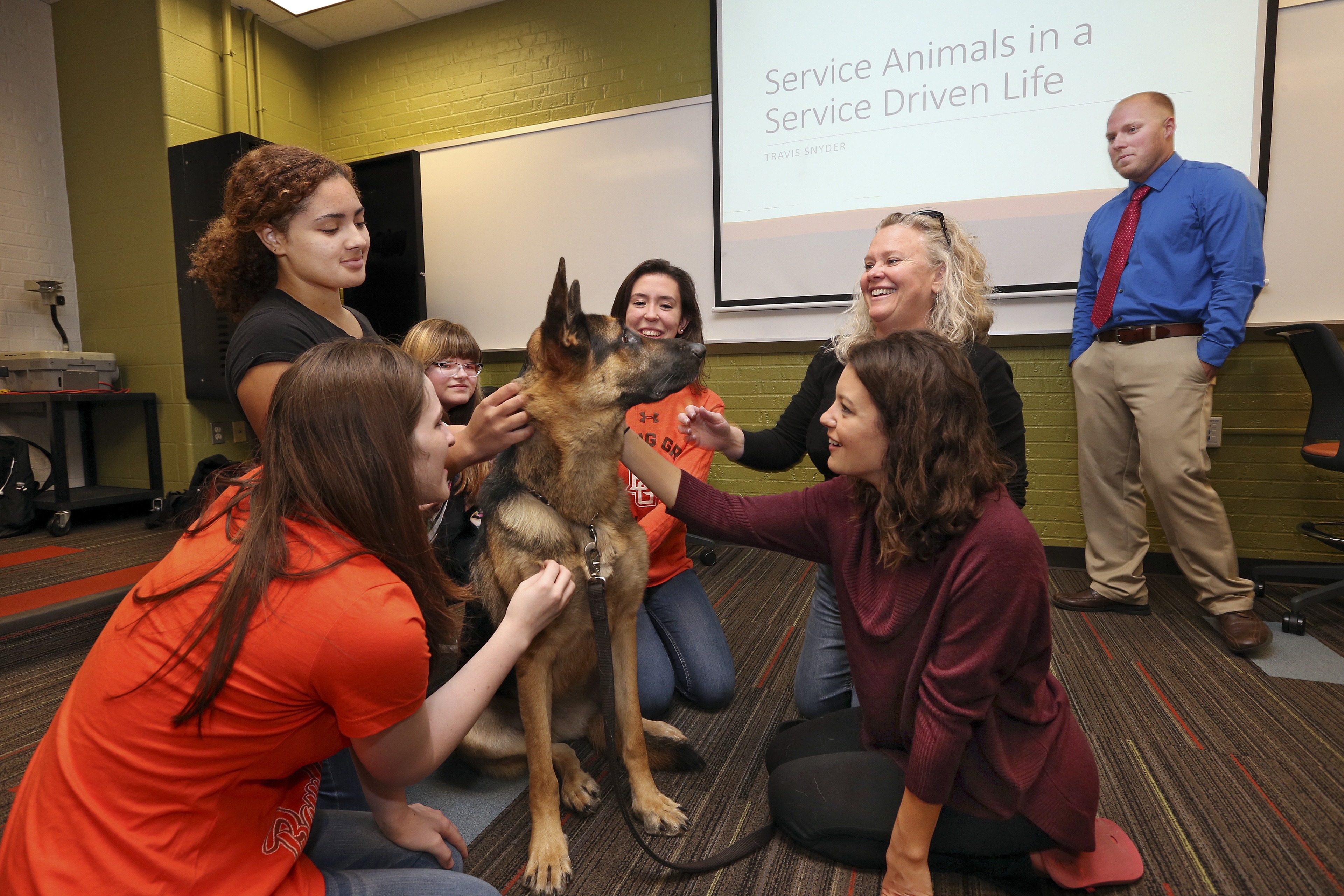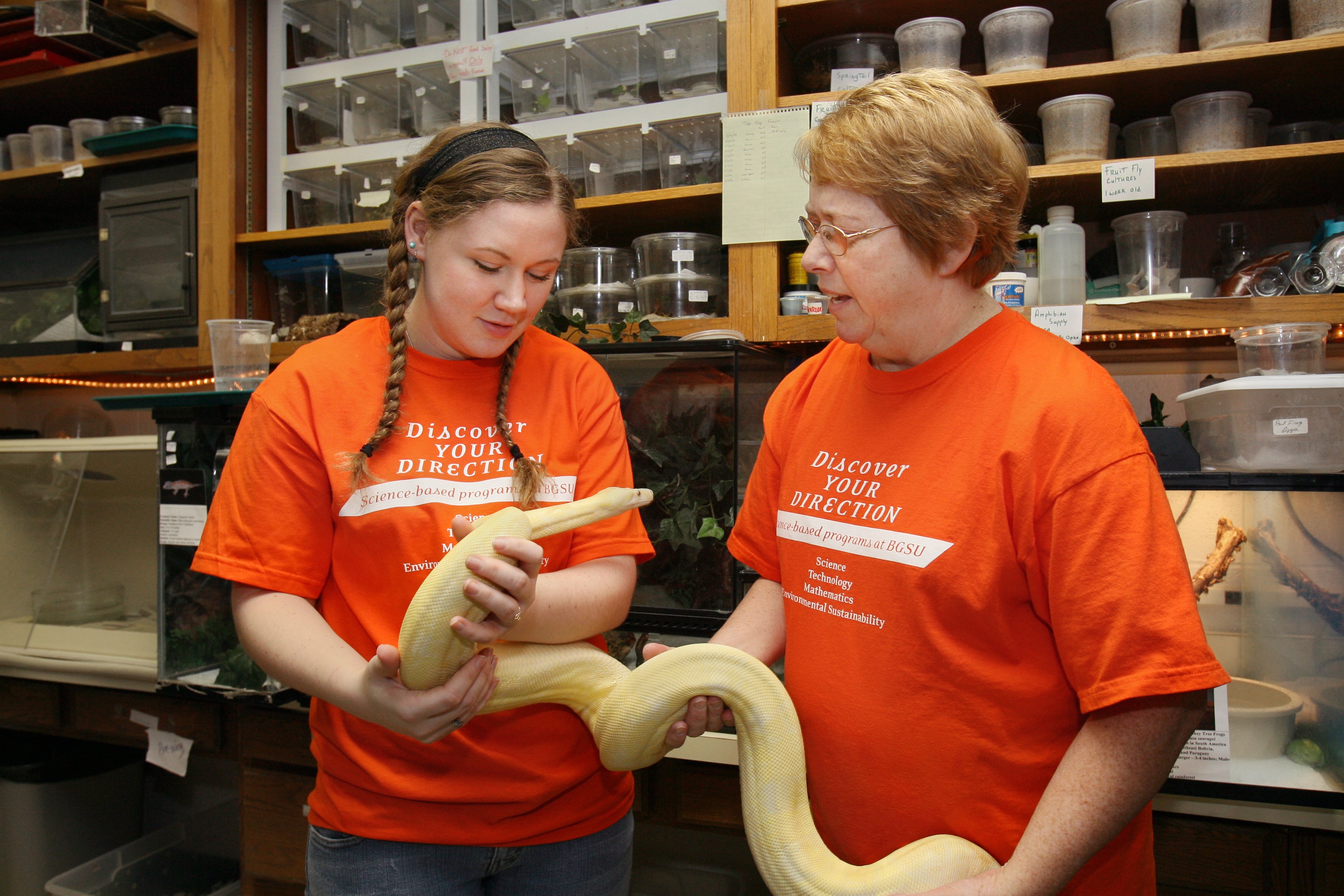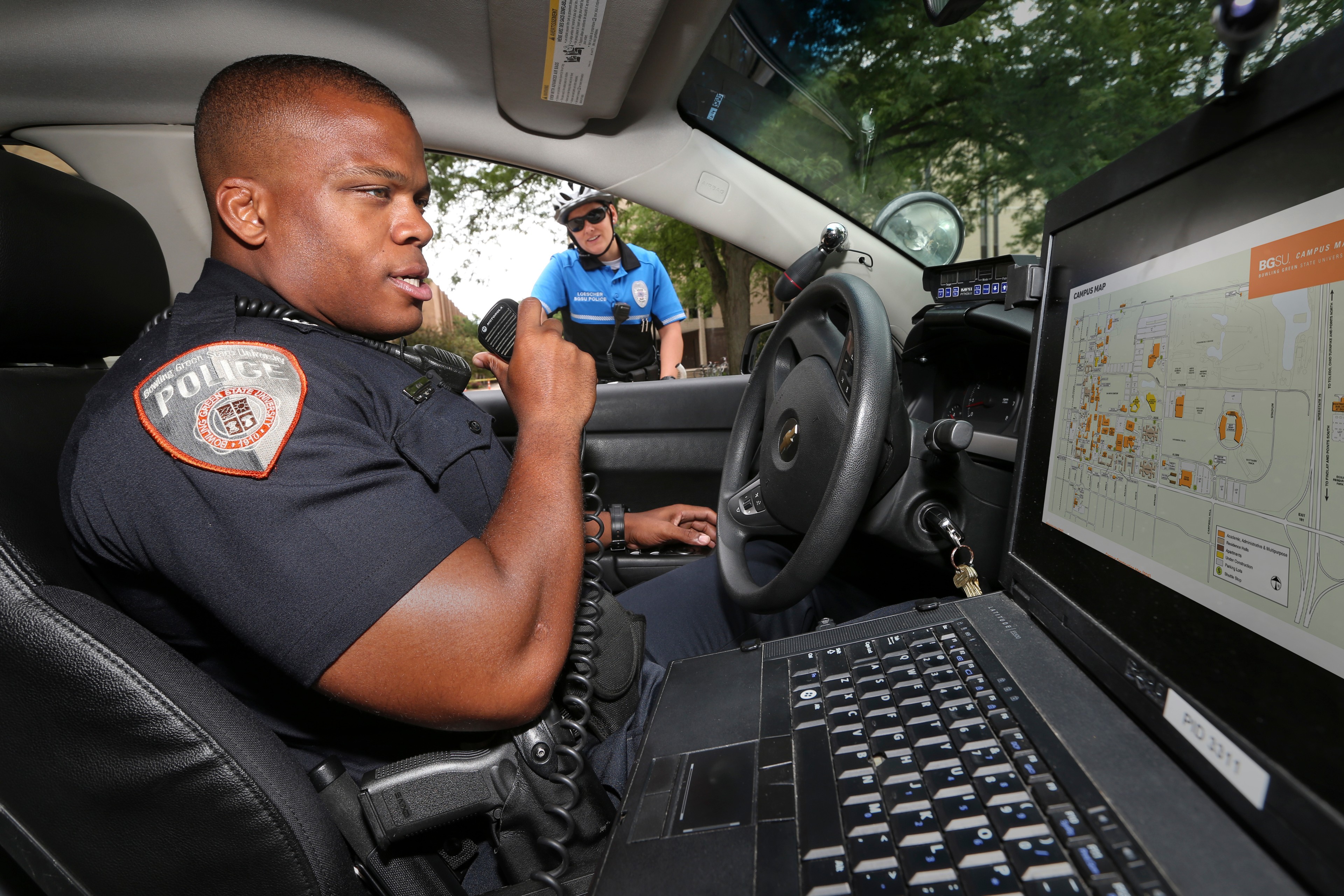Nationally recognized for student experience
The Wall Street Journal

Pre-Veterinary Medicine
Have you always been an animal lover and dreamed about becoming a veterinarian? The BGSU pre-veterinary program equips you with the knowledge, skills and experiences to gain admission to veterinary school.
Pre-veterinary medicine is a pre-professional track at BGSU. Choosing this track is a great way to make sure you’re ready to apply to a Doctor of Veterinary Medicine (DVM) program after earning your bachelor’s degree.
Pre-vet students not only take the classes required for admission to veterinary school, but also have a major in a specific subject area. BGSU offers a supportive and challenging environment to prepare you for the rigors of vet school.
Want more information?
Emma Pennington
Coordinator of Recruitment and Outreach
419-372-6805
eleader@bgsu.edu
Why choose to be a pre-veterinary medicine student at BGSU in Ohio?
Admission into a DVM program is highly competitive. Our job is to help you meet the requirements and build a strong application. The earlier you prepare, the better chance you have to be accepted into the school of your choice.
By declaring as a pre-vet student, you will have immediate access to the Office of Pre-Professional Programs. We are here for you from freshman orientation to graduation to help you make informed decisions about your path forward.
- Exceptional pre-vet advising. BGSU stands out for its culture of support and personalized guidance. We know what professional schools are looking for in future vets and can help you develop those skills and qualities.
- A strong academic foundation. We know the prerequisites to take, the GPA you need and how to prepare academically for vet school.
- Mentorship, alumni and peer connections. Peer ambassadors offer a first level of support. You also will have opportunities to shadow and hear from veterinary professionals. These relationships are invaluable as you explore career options.
- Hands-on opportunities. Vet schools like well-rounded students. BGSU offers many student organizations and other ways for you to volunteer, be a leader and cultivate those credentials. Our Center for Undergraduate Research can help you find research opportunities as early as your freshman year. You can also get experience with exotic animals by volunteering in the BGSU herpetarium.
- Application help. We help you navigate the rigorous application process to veterinary school.
- Excellent value. BGSU offers a high-quality, affordable education and generous scholarships.
- Proven success. Our graduates are well prepared and regularly accepted into outstanding veterinary schools.
- Natural and Health Science Learning Community. Live with other students pursuing health-related majors. The extra academic support you receive in the community is a significant advantage for gaining admission to medical programs.
About 1 of 10 applicants is admitted to a DVM program.
(Source: Association of American Veterinary Medical Colleges)
#1 public university in Ohio for career prep
The Wall Street Journal
Why choose a career as a veterinarian?
A career as a veterinarian offers a unique blend of intellectual challenge, emotional reward and the opportunity to make a difference in the lives of animals.
- Science and problem-solving. You'll diagnose and treat illnesses, requiring critical thinking.
- Variety and specialization. There's a veterinary specialty to suit every interest – from general practice to surgery and cardiology to exotic animal care.
- High demand. This translates to stable career opportunities and job security.
- Lifelong learning. Veterinary medicine constantly evolves. Veterinarians must stay up to date on the latest advances.
The career also comes with long hours, emergencies and difficult decisions and can be emotionally taxing. But witnessing an animal’s recovery – and playing a hand in it – is incredibly rewarding.
Career paths
- Small animal or large animal practice
- Veterinary surgeon
- USDA veterinarian
- Zoo veterinarian
- Veterinary researcher
- Animal shelter medicine
- Veterinary roles in pharmaceutical companies, pet food development or animal welfare organizations
- Aquatic veterinary medicine
Quick Facts from the Bureau of Labor Statistics
Curriculum
Coursework for pre-veterinary students varies by major. It’s important to work with your academic advisor and the Office of Pre-Professional Programs to make sure you complete the prerequisites you need to apply to veterinary school.
Students are responsible for verifying all prerequisite courses with the veterinary medicine school of their choice. Typically, veterinary school admissions committees require you to take these courses. (The equivalent BGSU courses are indicated in parentheses.)
Required Courses
- One year of English
- General biology (BIOL 2040/2050)
- General chemistry (CHEM 1230/40 or 1350 and CHEM 1270/80 or 1370/80)
- Organic chemistry (CHEM 3410/CHEM 3440/60)
- *Anatomy and physiology (BIOL 3310/3320) *OSU/few programs
- General physics (PHYS 2010/2020)
- Microbiology (BIOL 3130)
- Genetics (BIOL 3500)
- Biochemistry (CHEM 3080 or 4450/4470) General psychology (PSYC 1010)
- Public speaking (COMM 1020)
- General psychology (PSYC 1010)
- General sociology (SOC 1010)
- Math-statistics to calculus (MATH 1150, MATH 1220, MATH 1280, MATH 1310 or MATH 1340/1350)
- *Animal physiology (BIOL 4110) offered at BGSU

Sample courses
- Physiology
- Microbiology
- Physiology
- Organic Chemistry
- Introduction to Public Speaking
- Diagnostic Immunology
- Social Psychology
- Social Media Strategy for Small Business
- Accounting and Business Concepts

Review our academic planning guides to give you an idea of the required pre-vet track coursework and academic path. Factors such as placement testing, course prerequisites and course availability each semester may affect your navigation of the pre-vet track.
#1 university in Ohio – big or small, public or private – students would choose again
The Wall Street Journal
What DVM schools are looking for – and how BGSU can help you
Your pre-professional and academic advisors can help you plan early to prepare the strongest application possible to veterinary school. Most graduate schools typically require:
- A high GPA, strong in the required sciences. The most competitive programs admit students with GPA scores higher than the minimum.
- A variety of vet contact hours and animal care hours
- A strong essay
- GRE (only two schools require this)
Medical knowledge is a core part of being a veterinarian, but DVM schools are looking for a range of other skills and character attributes.
- Commitment to the profession. One way to show you care about moving the profession forward is to engage in research. The BGSU Center for Undergraduate Research can help you participate in research as early as your first year. Some students have published papers and presented posters at conferences by the time they graduate.
- Communication skills. One veterinarian estimated half of their day was spent talking to people. Classes in public speaking are often a DVM school admission requirement. The BGSU Forensic and Debate Club can help you develop your skills as a confident communicator.
- Business skills. Many vets run their own practices and must understand business fundamentals, HR, accounting and marketing. The BGSU Allen W. and Carol M. Schmidthorst College of Business offers courses specifically for non-business majors or business minors. A major in business is another possible pathway to a DVM program.
- Emotional intelligence. Understanding how people relate to their animals can be helpful. Working with sick and dying animals also takes a toll on the veterinarian. BGSU psychology classes can be a valuable way to differentiate your application and help with your personal and client well-being.
- Extracurricular activities. BGSU has many student organizations and opportunities to volunteer and learn leadership skills. These resume-building activities make a stronger case when applying to DVM programs.
Veterinary and Animal Science Camp
Are you a high school student interested in a career in veterinary medicine or working with animals as a technician or zookeeper? Join us at this summer camp to explore career options and learn about the BGSU pre-vet pathway. Interact with professors, veterinarians and BGSU alumni. Registration typically opens in October.
Request Information
Accreditation
Bowling Green State University [BGSU] is accredited by the Higher Learning Commission. BGSU has been accredited by the Higher Learning Commission since 01/01/1916. The most recent reaffirmation of accreditation was received in 2022-2023, with our next reaffirmation of accreditation scheduled for 2032-2033. Questions should be directed to the Office of Institutional Effectiveness.
Updated: 06/06/2025 10:54AM

